Percent Zohran
The Mayor-elect's platform is ambitious and quasi-DOA on paper. But the political and pundit machine are missing how powerful even 30% success for Mayor Mamdani could be for real people in New York.
It could give us hope for a different—if not better—future.
A Mini Mini-Series On (Hopefully) The Next Administration
I ran this draft by my friend and colleague, Josh Gee1 (who writes the intermittent and brilliant Snack Cart), and he wrote back, “It’s a lot of threat clearing and general anger about living in the Republic…I think it will be much cleaner if you are exasperated but not angry.”
Heard.
I’m going to spend this edition table setting, identifying some of the challenges a Mamdani administration might face, and the next one contextualizing his platform given these challenges.
Let Me Clear My Throat
I’ll start by saying I supported Zohran for Mayor and will root for successes and help minimize challenges however I can. It’s important for us to set realistic and stretch expectations for an incoming political leader. Three thoughts:
We shouldn’t expect these political actors to act in any other way than self-promotion—we should not pedestalize them, and we certainly should not revere them. We should, however, hold them to high standards.
If I had to put my finger on it, this is why it feels so good to have someone like, if not exactly, Zohran Mamdani reflecting the will of a growing majority in New York.
We also need to set expectations. There are City and State limitations on the executive’s power and control of the levers of government, but this isn’t a treatise on New York government.2
In Zohran Mamdani’s bid for mayor, who has a critical role in the development and deployment of a budget the size of Venezuela’s for a population a quarter the size, his very existence is crocodillic for the New York stratospheric class. They’re not used to not being able to buy their city, and they’re freaking out about it. There are competing interests for which a compromise is not possible. Administering New York dollars from New York taxpayers is an n-dimensional labyrinth. There’s no exit, but there’s also a whole lot of dead ends.
Anyone who proclaims, “I can fix New York if you let me,” is selling something else, most likely self-promotion or special interest. I don’t think Zohran is doing that; I truly think he means what he says about making New York more affordable. But I think he’s up against a concrete adminstrative state and body politic that will fight and fight and lie and cheat and fight—and it’s truly hard to understand why unless you’re an exasperated cynic like me. The New York Centric “Democratic” “establishment” withheld its endorsement until a week left (save for Governor Kathy Hochul, bless up)—and Zohran won anyway. What good did a November 3rd rallying cry do?3 Did we really want Andr*w C*omo back?4
In light of the Byzantine processes, politicking, and administration, I wanted to write something that helps to contextualize the power the next Mayor does and doesn’t have, and will spend some time deconstructing Zohran’s policy platform through the lens of—what happens if he achieves his goal? How will it remake the city in favor of those who live and work here? I’ll also spend time arguing that even if he achieves only some percent of his platform, it will completely rewrite the rules of how to Democrat in the 2020s and beyond.5
Like I said above, I supported Zohran for mayor—and I’ve said this before on various platforms, like LinkedIn6 and in real life to anyone who will listen to me blather on about it, but not without reservation. He’s a relatively untested policymaker with no citywide elected experience, though he does represent Queens in Albany7 and has walked or traveled around the entire City for the better part of 2025. He’s written laws and sponsored and co-sponsored bills at the State level. He’s a superstar communicator and writes and speaks in plain English.8
But we’re remiss if we don’t discuss the DOA premise his opponents are banking on. To help organize my thoughts, I’m going to try and understand what a bare minimum term looks like and to borrow from tech, we’ll call it a Minimum Viable Platform (MVP) and look at it through the lens of, “What’s the smallest amount of the ambition that can make meaningful difference in New Yorkers’ lives?”
What does a Minimum Viable Platform Look Like?
I’ve said the platform is potentially DOA, but that doesn’t mean we give up on a nascent New York because we’re scared to fight for it, or preposterous opponents make unspectacular criticisms of some, part, or all of the ideas explored on Zohran’s website. Lots of these criticisms attack the core selling point to voters in November: the city is unaffordable, and the city should pursue programs and policies to make living in New York City easier. It’s a simple-as-hell and extremely obvious premise that is impossible to dismiss outright, so Zohran’s opponents attacked him personally for who he is, which didn’t work, or, more legitimately, attacked his platform, which also didn’t work.
More on MVPs next week. For now:
Now’s when you’re asking yourself, what is Zohran’s platform/agenda?
It’s centered and built around affordability, which is astonishing that we haven’t had a recent mayor before push this strong of an agenda, especially as costs continue to explode.9
Affordable housing, affordable and ubiquitous childcare, affordable (fare-free) buses. The things that matter to a New Yorker who still has to check a bank account—or who doesn’t have one at all.10
I’ll get into these policies individually next week, but here’s a snapshot. My thesis is this: there’s some percent of all of these priorities—and advancing the current agenda—that would make a Mamdanistration a resounding success. We must reframe how we judge his prowess; we must rethink what success means and tie it to the problem—affordability—at hand.
Structural/Political Challenges That Will Stymy Progress
The problem is real and the solutions are, at best, tied to positive populist results and at worst, and I’ll say it again and again, dead on arrival. Here’s why I say that:
The City is not authorized to levy new taxes on its own or raise new money without the State legislature (and Governor by fiat) authorizing it to do so.
It’s not that a Zohran administration can’t adjust local taxes (or remove them, if he should choose)11, it’s instead that the City is prohibited by the New York State Constitution from, “…except to the extent that the legislature shall restrict the adoption of such a local law relating to other than the property, affairs or government of such local government… the levy, collection and administration of local taxes authorized by the legislature and of assessments for local improvements, consistent with laws enacted by the legislature.”
Budget cuts are coming—the erratic Federal government might seek to rescind several billion ($7.4 billion or ~5% of the budget),12 or at least we have to act like these cuts are real. Progress through austerity is really, really hard.
What does this mean for the ambitious agenda when the next mayor has to navigate very real challenges to keep the lights on, while, and you’ll excuse the metaphor, trying to change the lightbulbs, while also trying to swtich flourescent for LED.
Where does this administration make its cuts? It’s not a question of who loses, because we know the answer is going to be Education, whose budget alone is near twice the next largest American CITY’s budget (Chicago at around $18 billion). The answer is going to be Social Services, and there’s going to be just a skim off the top of almost all the discretionary spending. I also wouldn’t be surprised if the City attempts to spend hard on collection of upaid bills and/or a restructring of City debt. We’re going to be dependent on the State, which is loathe to step in and subsidize City spending for good and bad reasons, on wealthy individuals and corporations, who and which will be kicking and screaming about any changes to their tax structure. We’re going to be dependent on the Federal Government, not only to not act erratically and capriciously, but also to not continue to push all the way down into the living rooms of the most vulnerable New Yorkers.
Organizing around ideas is hard and takes a long time.
The mayor is the executive and needs the City Council to write and pass bills to enable the people’s agenda. Political will might not be there yet or organized in a way to spend as political capital yet. I’m hopeful it is, though, with a progressive speaker replacing a centrist and new affordable housing referenda passed, deemphasizing member deference.13
While the platform is relatively clear and the math maths on paper, we don’t live in a Crown state, where power flows through the central King and Council actions are clarifying at best. We live in a litigious system governed and hamstrung by our own hubris that the people have a right and mandate to govern themselves.14 This cuts both ways as our court system is designed to carry lawsuits endlessly. I’m hopeful Zohran would take the “consent not consensus” approach and not try to make everyone happy at the expense of anyone. HOWEVER, with the passage of the new affordable housing doctrine, for one, there seems to be a new way to cure, which should also give more direction to the courts. We need to follow this closely to understand how it may direct other initiatives—especially those Zohran ran on.
There are unexpected administrative levers that are either required by charter or by legislative process or (ever diminishing) norm that will take time for the administration to plug into or change.
The City is a slow-moving beast at best and a pitfall of traps and chutes and ladders at worst. The Executive can remake the office in his image and administer government medicine as best befits the City’s charter and the will of Council—the parameters are somewhat broad, but the office has its mandate in the name—Execute. A Zohran administration would need to coordinate and activate career staff around his vision. At $116 billion and tens of thousands of employees, there’s bound to be subterfuge by employees who’ve been at their post for 5 administrations and never had to answer for their work outside of the letter and intent of the mandate.
How should this new administration inspire or coerce the staff to do the vision, in the face of State oversight, a yo-yo budget, and a plurality of ideas? I don’t know, but it will likely take more staff work than could ever be budgeted for, and for each of these staff members to have the charm, charisma, and grasp of the vision of a 30% Zohran at worst. I can’t see this happening all in a single term, all while quality of life simply arbitrages away for all but the wealthiest New Yorkers. But I hope.
All this without a major tragedy completely derailing this administration, OR a bunch of bullshit gumming it up that’s really hard to predict. As Josh reminded me, labor is particularly strong in New York and a protracted or prolonged fight with the NYPD or Teacher’s Union could domino the agenda if the City institutes a de facto vote of no cofidence. In the US, we don’t handle lame ducks very well at all. We’d be left with a corpse government for the remainder of a term.
This is why I’m adamant about reimagining realistic expectations for a Zohran Mamdani administration. Not that I don’t think these ideas are possible and that I’m rooting for him/them, but that I want to see what’s probable and how getting even some ideas operationalized is going to be a W.
Next week I’ll go through the whole agenda, make some recommendations, and discuss prioritization based on a framework that reflects the realities of getting stuff done.15
I learned too late that this name is pronounced with a hard G.
I recommend reading a lot of Daniel Golliher’s work on the topic for his newsletter/information hub called Maximum New York. I don’t always agree on Daniel’s interpretation of power or government, but I admire his dedication to training those who opt in to be better representatives of their own ideas in the marketplace of those ideas.
It came eventually from House Minority “Leader” Hakeem Jeffries. https://x.com/CBSNewYork/status/1981794275089137998
We got nothing from Chuck Schumer and less than nothing from Kirsten Gillibrand. Vote blue, no matter who, indeed.
No.
Admittedly, I chose 30% relatively arbitrarily, but 40% seems too high and 20% seems too low for a minimum viable platform. Fight me.
Gross.
Shorthand for the New York State Legislature, including the New York Senate and Assembly.
Looks in the mirror. I write as if Thomas Chatterton Williams became self-aware.
No citation. You know this is true, I know this is true, billionaires lie and steal our resources/labor.
For those in the back paying attention, an estimated 7% of New York households do not have a bank account, for various reasons. https://www.nyc.gov/site/dca/news/027-25/dcwp-releases-updated-research-brief-238-900-households-nyc-unbanked
Not happening, but he could.
This is a report from the State Comptroller: https://www.osc.ny.gov/press/releases/2025/02/dinapoli-nyc-budget-stabilizes-new-risks-emerge
The City, a local paper, reports on member deference, here: https://www.thecity.nyc/2025/09/24/housing-advocates-ballot-proposals-city-council-deference/ and correctly frames it as a doctrine. Essentially, it devolves land use decisions to the local elected official, with other members outside the affected district voting in favor with the expectation that the hand shakes back. Other cities call this councilmanic prerogative or aldermanic privilege.
Sort of. Technically, we live in a representative, constitutional republic with formerly democratic principles.
We’ll miss you, Eric.



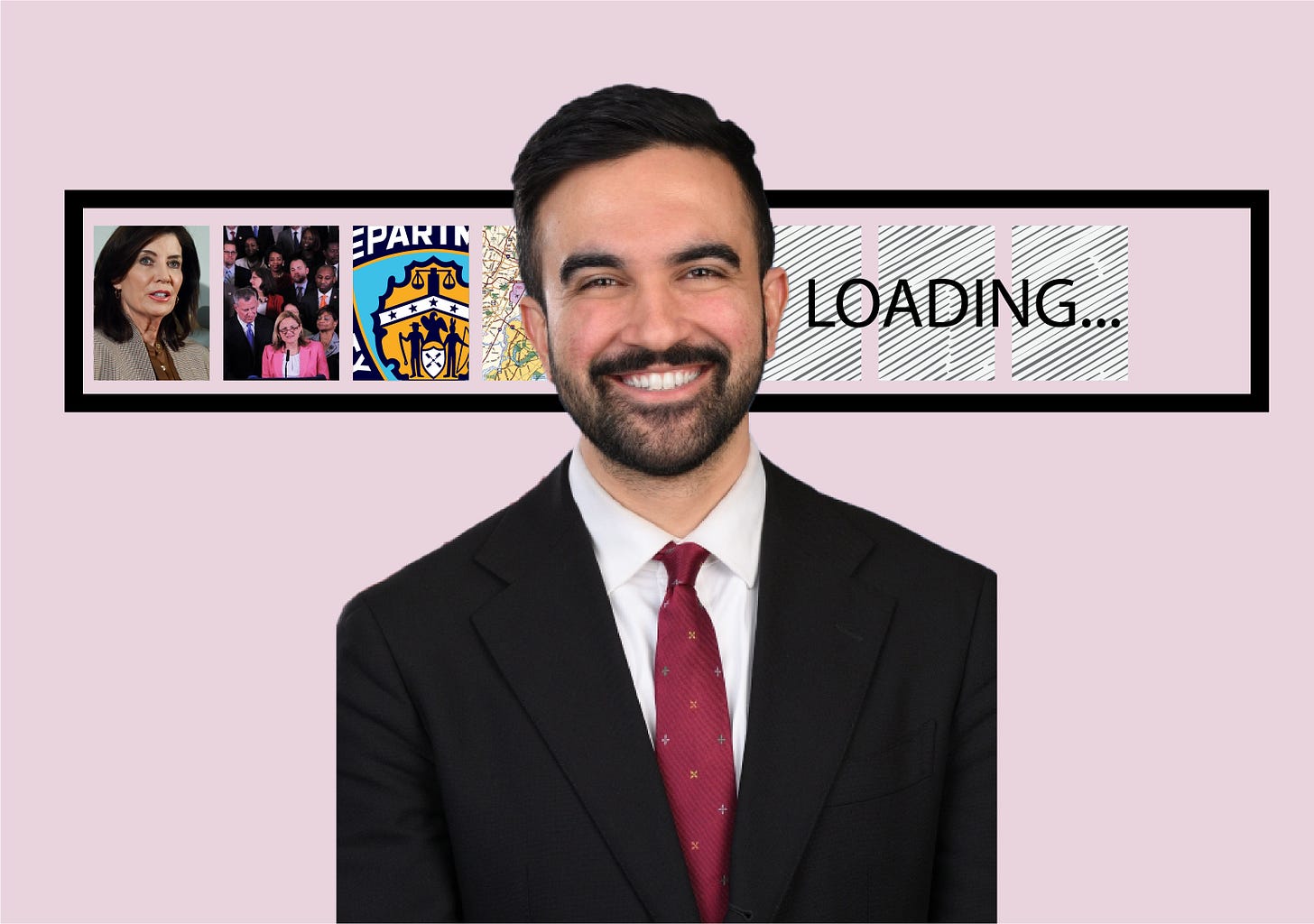
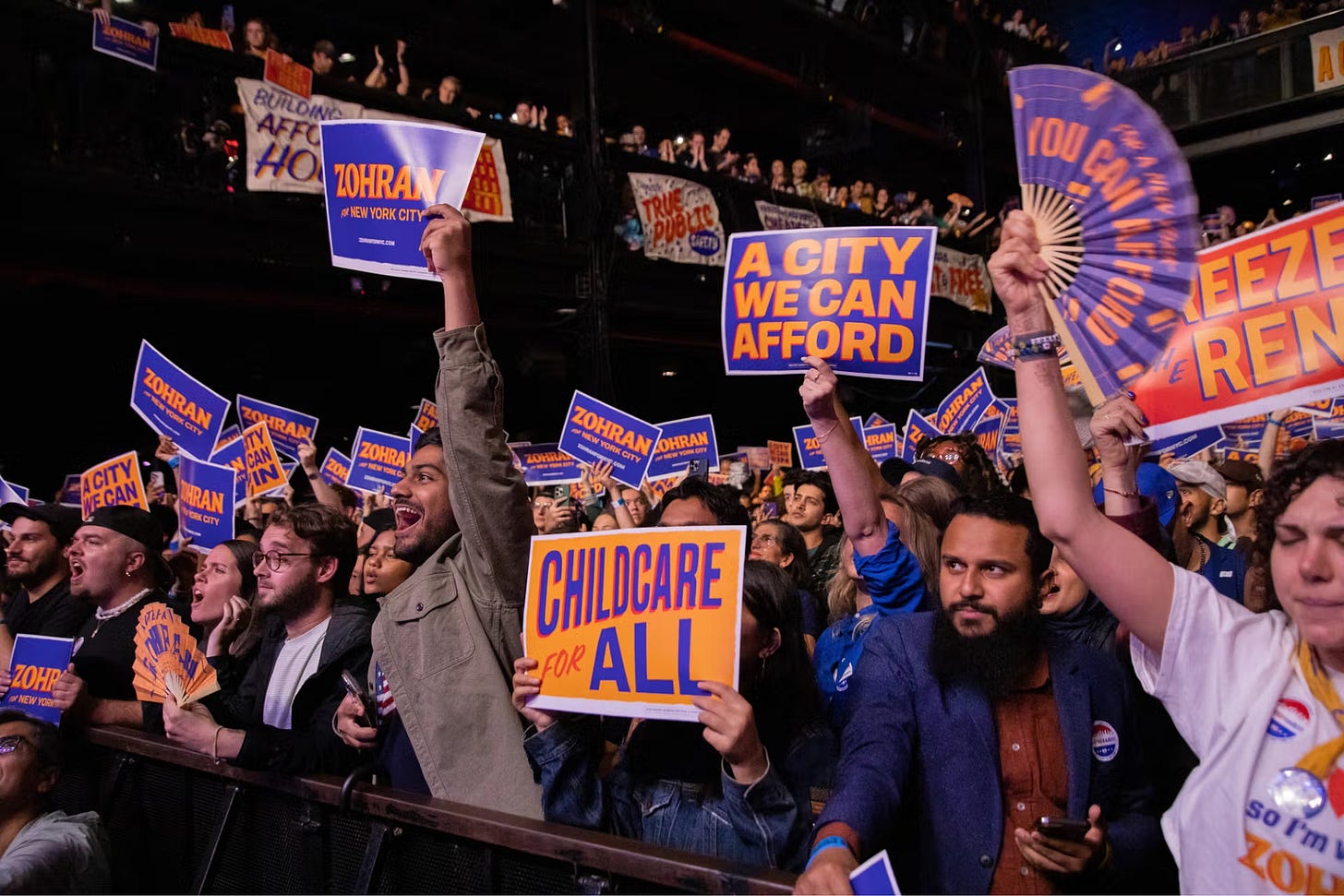

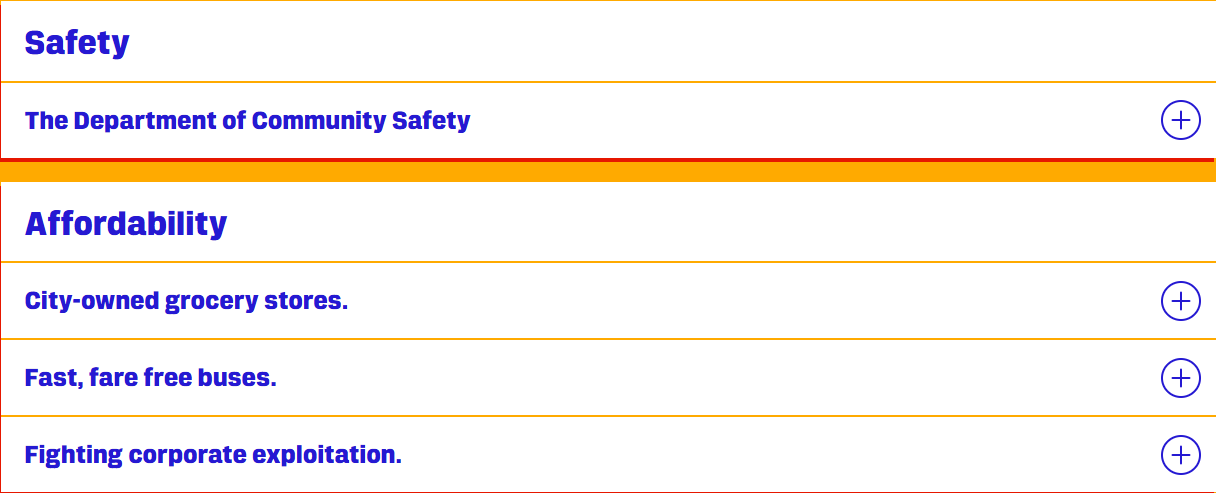
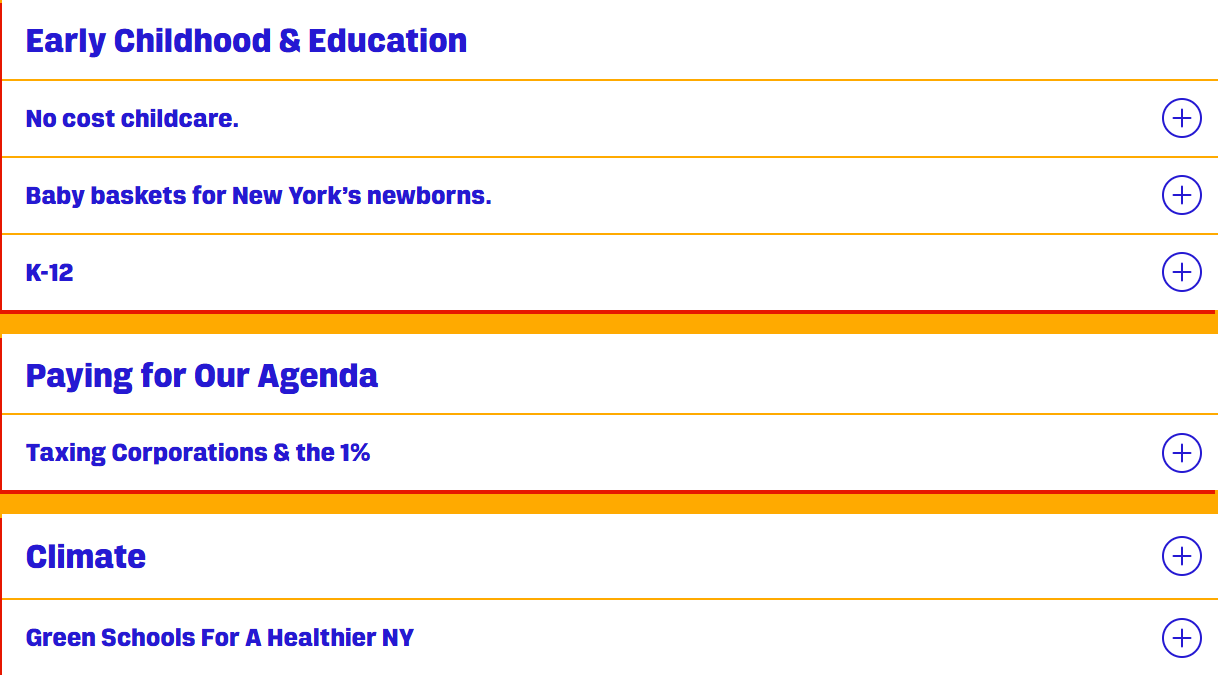
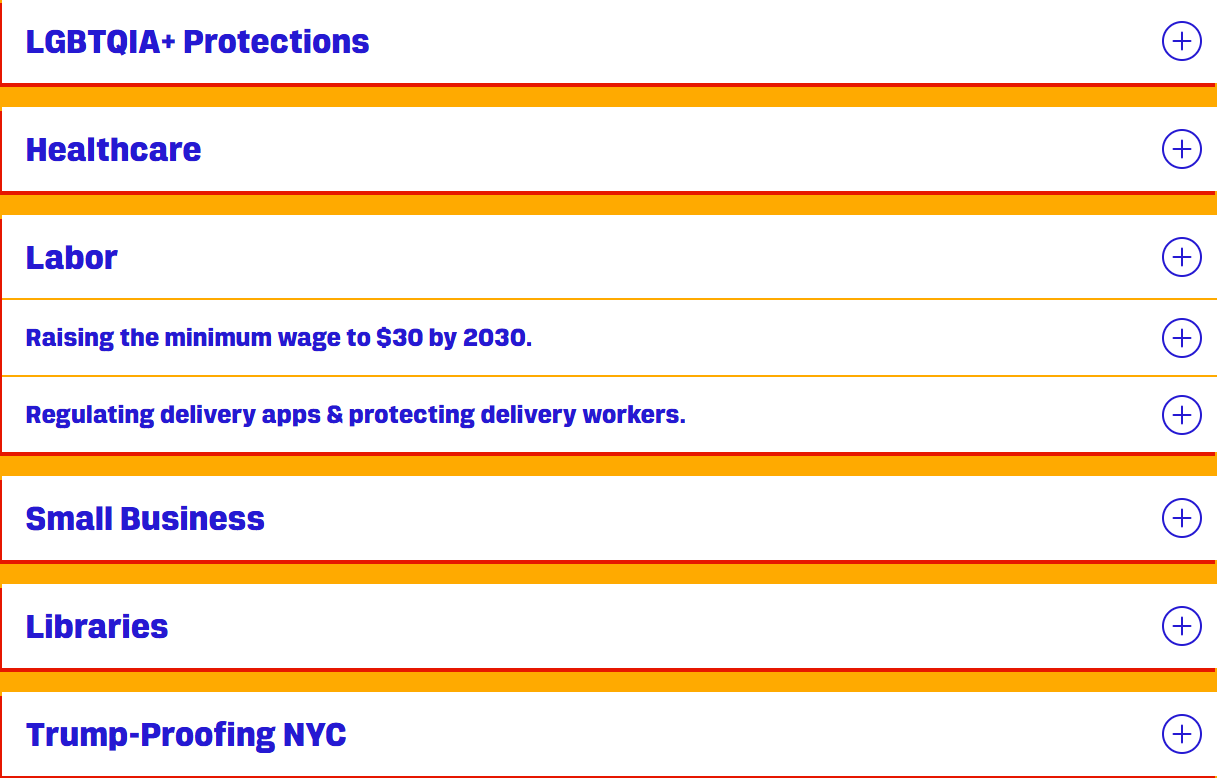
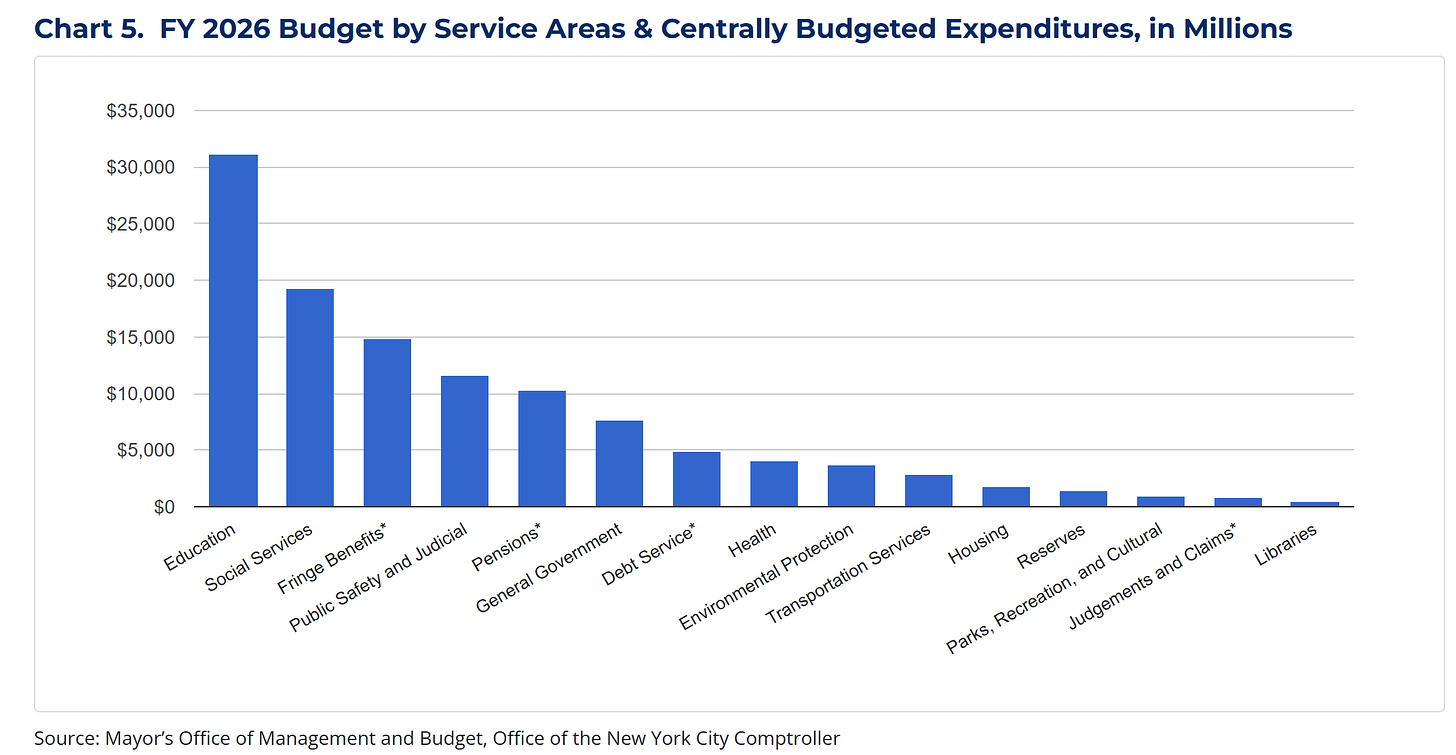
You’re a good writer. Maybe too good because I no longer feel the need to think about this particular angle.